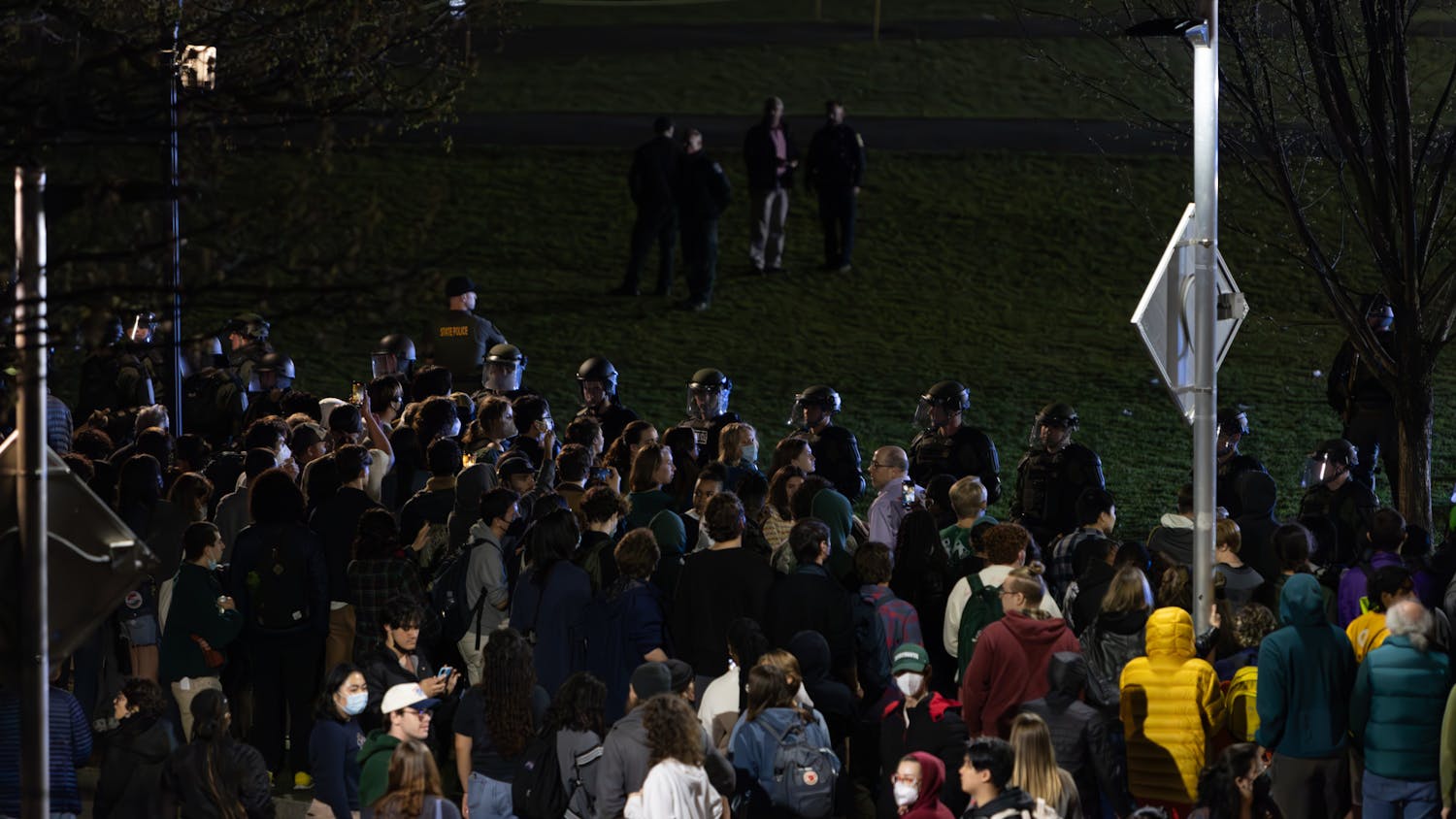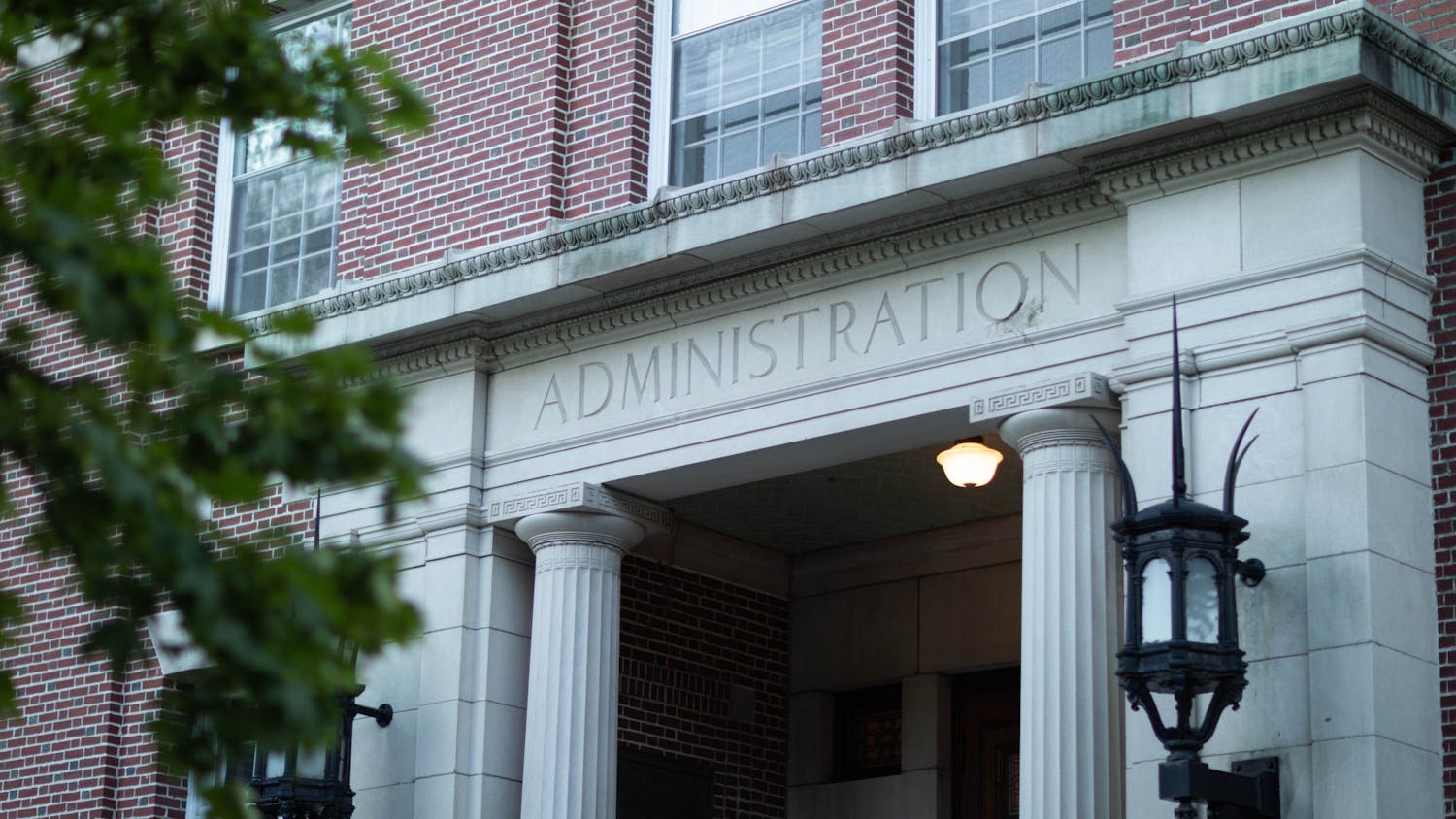Prominent economics theorist John Kenneth Galbraith reflected on his ground-breaking 1958 work "The Affluent Society" to an audience of over 150 faculty, students and community members in 105 Dartmouth Hall.
"The Affluent Society," written by Galbraith while he was on a Guggenheim grant to study poverty, challenged conventional economic theories.
According to Galbraith, "The Affluent Society" was hailed "as the answer to Sputnik."
The book appeared on The New York Times Bestseller list, and received favorable reviews from nearly all critics.
One bad review by the London-based Times Magazine was later retracted. Galbraith recalled reading that bad review in London on his way home from a lecture tour in Eastern Europe.
"Suddenly I realized that John Steinbeck, an old friend, was behind me," Galbraith said. "He said 'Unless the bastards have the courage to give you unqualified phrase, ignore them!'"
Galbraith, who served as the American Ambassador to India from 1961 to 1963, said ironically, "writing about affluence and the affluent society made me a member of it."
Galbraith's fame had unexpected results. While in Uruguay during a lecture tour of South and Central America, he was billed by a local newspaper as a leading American communist, rather than an economist.
Galbraith, coined the term "conventional wisdom" for the book, and joked that "I've been long since convinced that I should have taken out a patent on it."
Traditional economic theory holds that the consumer is sovereign and dictates what succeeds in the market.
However, "The Affluent Society" argues that needs are created and sustained by fashion, social aspiration and good marketing.
The book also made the then startling prediction that growing inequality will result between the rich and poor in American society.
"Today, inequality is getting much worse, much more rapidly than I had then imagined," Galbraith said. "As the political power by which inequality is defended is stronger."
According to Galbraith, it is in some ways worse to be poor in a rich country than poor in a poor country.
Galbraith said the "righteous effect of income," whereby the affluent "attribute success to their own wisdom or those of their parents," is one of the most important problems facing modern society.
"This justification for the enjoyment that affluence brings divorces [the affluent] spiritually and morally from the problem of the poor," Galbraith said.
Galbraith said the only way to improve the conditions for the poor is to encourage them to vote.
The book also argued that, partly as a result of this justification of affluence, there is a difference between public and private living standards.
"This leads to the paradox of clean houses and filthy streets," Galbraith said.
"Public outlays are seen as a bad and burdensome thing while private sector spending is encouraged," Galbraith said. "The two exceptions are spending on weaponry of questionable need and corporate welfare."
Citing "the need for a safety net in our cities and for our rural poor," he said he opposed -- then and now -- the use of tax cuts to stimulate to economy.
In one of the most quoted passages in "The Affluent Society," Galbraith questioned the lack of environmental concerns, asking, "Is this indeed the American Genius?"
He said while the environmental situation is mildly better today, there is still room for improvement.
Galbraith also spoke about his new book "Letters to Kennedy," which he described as a catalogue of his thoughts 30 years ago.
In letters to President John F. Kennedy, Galbraith opposed the Vietnam War, asking "how do you tell a communist jungle from a free enterprise jungle?"
This was Galbraith's first public lecture since an accident a year ago that broke his pelvis, hip and shoulder.
Galbraith, the author of 23 other books, is currently an economics professor at Harvard University.
This speech was sponsored by the Tucker Foundation as part of a year long discussion on social and class differences.



